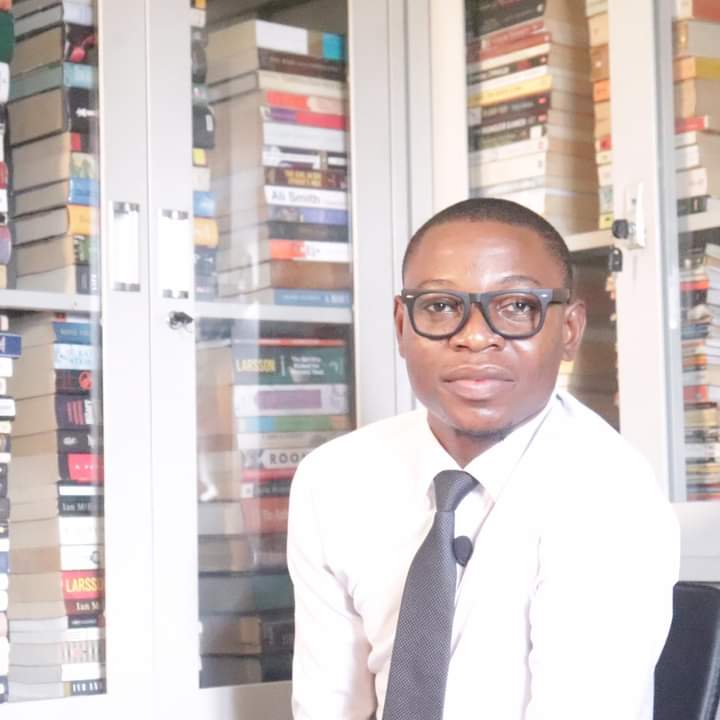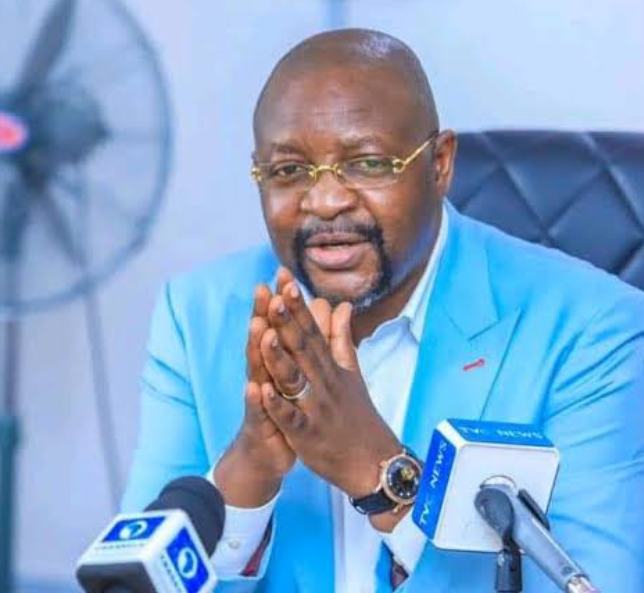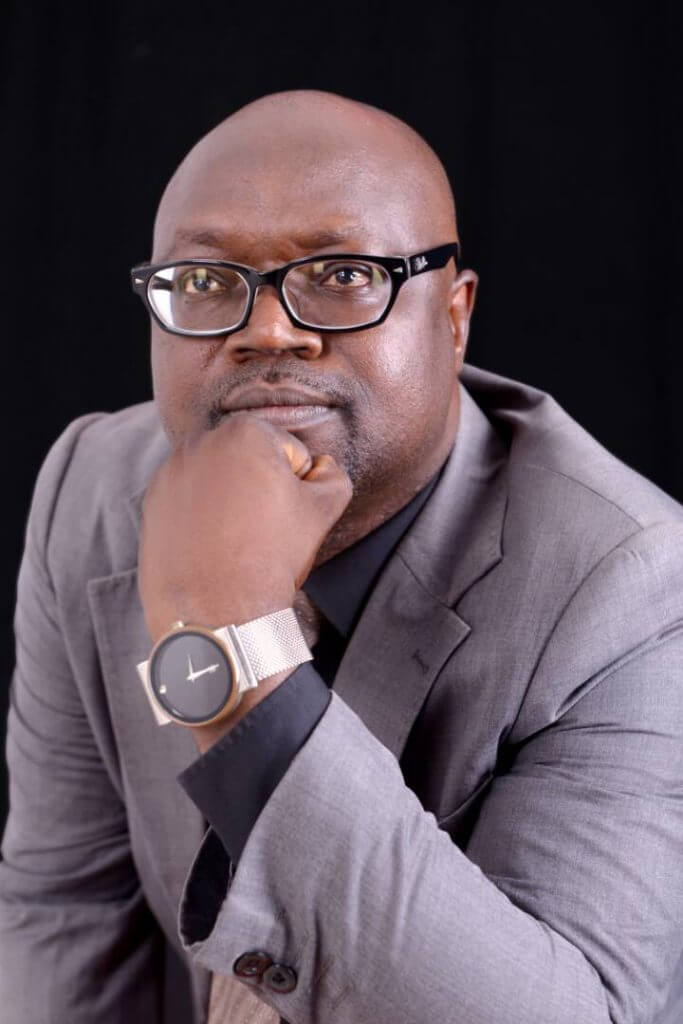INTERVIEW: Nigeria has no structure for youth inclusion in politics…they’ve to fight their way into it — Sunday Orji, award-winning journalist

By Chinagorom Ugwu
Youths inclusion in politics has been a recurring subject in Nigeria’s political lexicon in the recent times.
While there are dissenting views as to whether youths remain the quick fix to the country’s leadership quagmire, there is a seeming consensus among pundits that Nigeria’s political landscape has been dominated by people of the older generation with little room for the young ones.
Sunday Orji, an award-winning journalist, whose works spanned several reputable international media outlets, is among those who believe the youths have not been properly involved in policy and decision making process in the country.
In commemoration of this year’s International Youth Day, Orji tells CRISPNG the factors stifling youth participation in Nigerian politics and why the young ones need to take up the gauntlet of societal rebirth among other issues.
Not much progress has been in campaigns for youth inclusion in politics
“Talking about the level to which the youth involvement (in governance) has grown over the years, I will say maybe we have had some progress with Not-Too-Young To Run (bill). You know it was a wide spread activism at some points. It was not sustained, but I think around election time, this agitation usually will rise. We have not made a lot of progress between the early days of independence and what we have now,” Orji said.
The freelance journalist contended that the Nigerian youth of current dispensation are backward when compared to the first crop of Nigerian leaders, who he said, were very young, but were holding significant positions in politics and were able to engineer powerful discussions and efforts that led to the achievement of independence in the country.
He further bemoaned the fact that many Nigerian youths are preoccupied with the task of running family errands as well as quest to feed thereby relegating the weightier need for participation and takeover of governance from the old generation of leaders.
He said: “If you consider how young our first prime minister was and our first president and the premiers that led the different regions (of Nigeria), you will know that we are very backward from where we used to be. People in their 20’s still think of food, still think of running around for their parents, which is not necessarily bad, but as at that very age, (Wole) Soyinka, Achebe, Zik, Awolowo, Akintola, Tafewa Balewa, and many of them were holding very significant national politicians”.
Orji, who contributes for Aljazeera and CNN among others, lamented that it takes a longer phase for an average youth to achieve stability in politics, which he noted is instrumental for the current inability of the youths to takeover governance.
Nigeria has no structure to promote youths inclusion in politics…they should be ready to fight their way into it
According to Orji, Nigeria has not set up a good structure that will promote the clamoured transition of governance to the hands of youths despite the passage of the Not-too-Young-to-run bill in Nigeria.
The International journalist, however, maintained that the Nigerian youths should be ready to make sacrifices and demonstrate enough desperation to surmount these bottlenecks in order to shut themselves into the cockpits of political powers in the country and drive the desired national developments.
“But because it takes a longer phase now for an average youth to be stable (in Nigerian politics); they rarely have what it takes to step into politics (in Nigeria). And these are the fights they need to make themselves. There is no structure that should promote that transition (of governance to the hands of youths) naturally. People have to want politics and people need to be desperate enough to pay sacrifices to be in politics. So, it makes it a very big task,” he observed.
He further noted that unlike Nigeria, strong structures are in place in many countries that encourage and nurture youths into taking over the mantles of political leadership.
He continued: “In some countries, they have progressive structures where you can, you know, from this place, they nurture your interest in politics; they encourage political discussions among young people; they have youth parliament, but they have a lot of programmes that solidify youth participation in politics”.
“We (Nigeria) do not have that kind of structure and you know, people come out worrying a lot about what they will eat; how they will get jobs. People who are jobless do not do politics, of course except if they have to be errand boys and (political) thugs. This is why you see that a vast majority of young people who participate in politics do not play significantly active roles except to perpetuate further the intents of the people that are already in power- the older generation”.
The media expert further hinted that although the youths do not out rightly connote good leadership, but argues that the crop of old leaders the country currently has are not advanced enough to successfully pilot the affairs of the country.
Mr. Orji hinted, “I am not one who promotes the fact that youth is a definition of good leadership, but I do think that the crop of old leaders we have are not advanced enough to lead us”, adding that because of that, “to some points, we have been between progress and setbacks”.
Commenting on the recent protests by some young Nigerians against rising insecurity and poor governance in the country, the award-winning journalist maintained that while he does not condemn the protests entirely as it is ideal in modern democracies, he believes that it is not effective and enough for the entrenchment of good governance and championing the desired change in a sane society.
Orji opined that the country needs a more wide spread awareness and interest development of young people in politics.
He insisted that the silence of the youths in Nigerian politics opened way for the old generation politicians to plunder the country into its current deplorable condition regretting that the youths do not have interest in politics especially when it does not benefit their immediate job or survival needs.
He further expressed discomfort that out of over hundred million young Nigerians, only about one thousand young people are worried about the state of governance.
While recalling how the protests that greeted the murder of the African-American, Gorge Floyd, were held across the United States of America with millions of people in participation, Orji argued that the lack of interest in politics and poor mindset of some Nigerians led many to verbally attack and criticise the RevolutionNow protesters.
“Well, I think it is good. As a protest, it is fine. But, you know, something being ideal and something effective, are two different arguments. And looking at our democratic structure, it is ideal to permit protest. But looking at our structure, is protest sufficient enough? I don’t think so. At that scale, No! It is good they are doing a lot of good things of course getting people to protest and getting involved into issues that are very important to us. But is that fundamentally where we have had problems? No! I mean we have had protests, but the fact that we cannot sustain them and we don’t get results out of protests shows that there is a fundamental problem with the structure that limits what we can get out of protests.
“I encourage people to keep protesting if that’s how they can do their stuff. And the press will do their writing and everybody will play their own role in their spaces, you know, to make things work. But what you need to know is that we need a more wide spread awareness and interest in politics first. Young people are not interested in politics if it does not benefit their immediate job or survival needs. People are not interested in politics for passion. You know, for the sake of patriotism and all of that”.
Continuing, he said, “Look at rallies, for example, in U.S (against) Gorge Floyd (’s murder). It was not a thing of 10 people or 100 people. Now, because a lot of people are not so interested (in protesting against bad leadership in Nigeria), it is easy to isolate those who are interested and then give them negative labels and blackmail them. Because if every city is occupied (by protesters), it is more difficult for the government to manipulate the outcome of protests.
“Revolutionnow happened by a scanty protest. So, if they are able to spur the fire, it is good. But the disinterest in politics (among young Nigerians) even makes some of the young people to mock them (protesters). For example, I followed the trend when of them were arrested. ‘What did the young people say?’ ‘Na only them dey for the country?’ ‘Na only them dey suffer?’ ‘Na them sabi talk?’ You see that kind of mindset. So, the slavery of young people is from their mind first. And so no matter how loud the voices might be when the slavery is deep into the mind, there can never be freedom”.
On the fate of Nigeria in the coming 2023 general elections and the task of saving the country from its leadership ineptitude, the multi-talented Editor expressed pessimism that despite the inadequacies of the current crop of leaders, the people in power will stay much longer considering the current poor mentality of Nigerians.
He regretted that despite Nigeria’s over ten years attainment of democracy, Nigerians’ political ideology and voting pattern are still determined by their religious, ethnic and political affiliations.
We’re still not ready for change…why the few old elites will keep having their way
For Orji, the quest for meaningful development in the country may remain unrealistic due to the poor mentality of some Nigerians. According to him, the widespread poverty in the country and the attendant desperation to feed can becloud the sense of reasoning, due process and good judgement of the citizens in choosing the right leaders who will bring the needed change in the system.
Orji said: “well, I think, to a very great degree, the people in power will really stay for a longer time with our mentality because the mentality helps them to survive; the mentality makes it easy for them to survive even with all their wrong doing. For example, look at what defines our political ideologies and our voting patterns. They show to a great extent how underdeveloped we are even to be in a democracy. If your definition of voting pattern has to come from who speaks Hausa? ‘Who is a Muslim?’ ‘Who is a Christian?’. And who is from Niger Delta region and things in-between.
“Political debates are not about ideologies and clarity of plan to save the country. And so, the people have to go to election with one mind because it is the masses against a couple of few who want to use their brain. So, there is war in the ballot and the elites are in-charge of that war.
“So, if we have to make progress and benefit at all from democracy and all of that, the people have to understand why they have to vote and the sort of people they have to vote for. But just know this: so long as people are still so poor, it will be hard for them to make any choices that don’t have bias. This is a pure fact!
“If I am poor, the possibility that my greatest concern is to feed is very high; to be fine first; to be satisfied. People who are hungry don’t know anything about patriotism. They don’t know about institutional rights and all those things. So, to a very great extent, whoever implements a very negative system like this, (he) is already controlling the future in many ways. So 2023 or backward, the story is not going to be so different”.
The way out
To address the leadership imbroglios in Nigeria and increasing political apathy among Nigerians, Orji opined that families should engage their children in political discussions and help them to develop interests in politics. He posited that political discussions should be intensified among the people as this will assist the people to begin to know place in the society and develop the hunger to participate in politics as well as stifle apathy and contribute in electing credible leaders that will change the fortunes of the country positively.
“See, we make politics a very distant thing. (We wrongly assume that) Politicians are people in Abuja. But, politics is supposed to be from the family first. Until we start talking about politics and political lives, and governance, the same way we talk about Jesus Christ and going to heaven and repentance, we are not going to make a lot of progress. (In Greece), Politics is discussed in every household and taken to the assembly. That’s why an average Greek can talk about the philosophy of Socrates and they can talk about the structure of governance; the same as in a lot of successful empires including the Roman Empire and the rest of them.
“Now people (in Nigeria) need to make politics an everyday stuff; take interest in it, argue with it, raise your children with that idea of their place in the society. We talk a lot about the government; we talk a lot about the system that is working and the system that is not working. People need to discuss politics. Even if you start this protest, it is not going to erase a lot of these wide gaps, because these are gaps that were created by so many years of not doing a lot of good things, and it will still take a couple of years of doing a lot of good things to begin to bridge the gaps.
“When it gets to that point, people become enlightened politically. When we remove politics from an elite’s list and bring it to the people in the village, in their own local languages, break protocol of procurement down to the people, bring avenues, so that people from villages can be connected to the issue of accountability in Abuja”.
He further contended that, contrary to popular assumption, the task of changing the country lies on the common Nigerians, and not the elites. He added that common citizens had changed countries in the past such as France, Russia, America among many others.
“The biggest assumption I think some people make in error is that revolution comes from the elites. It is a lie! You see the people that will change Nigeria; they are not the big people. If this country will change, you see those that are actually on the streets: the Abokis, the shoe makers, they are the ones who will do it. They were the ones who changed France, and changed Russia and changed America and many countries that ever changed. Revolution comes the ordinary people.”


